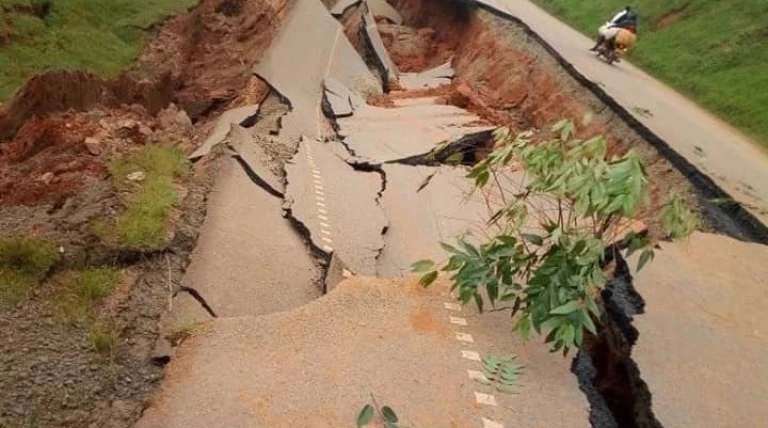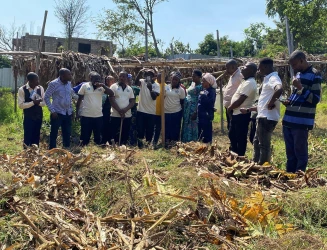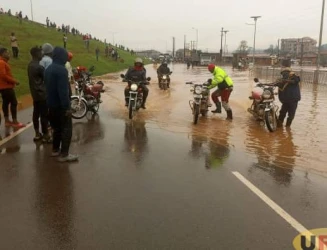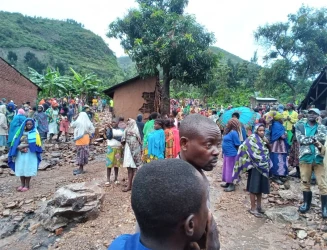
The Role of Local Journalism in Driving Climate Adaptation and Environmental Awareness in Uganda
Theme: The role of local journalism in showcasing local climate adaptation, NAP implementation.
Climate journalism is about the future, not only about Uganda's climate/environment, but of Africa and the entire globe. Today's journalism is too often stuck in the now. It needs to develop strategies to increase its legitimacy in the attention economy. This is especially true for public service media, which is under attack from various political camps. Who else should have a clearer mandate to contribute to the protection of humankind through better journalism? Does the public get a real picture of the Nakivubo drainage channel? Do journalists consult relevant organs like NEMA about the Nakivubo channel, or are these bodies turning a blind eye!? This way, public service media would also meet the needs of younger generations they are struggling to reach. Above all, it is their future.
A Ugandan environmental journalist recently visited a forest area where indigenous trees were being cut down and turned into charcoal for cooking and other household uses. This growing charcoal industry is rapidly depleting the forest, transforming it into a barren wasteland. The loss of habitat is forcing wildlife to migrate and severely disrupting the local ecosystem. Whoever knew how Mpanga forest along Masaka road in Mpigi looked like and its size now!?
In a study conducted by Gyaviira Kaleebu, a climate science& environmental student working with both local and international
climate issues, it was revealed that many indigenous people living in these forests have been forced to leave due to the destruction of their environment. A case in point is Mabira forest, where the majority of people migrated to safer locations.
The timber and firewood industries pose a serious threat to the survival of Uganda's forests, pushing them to the brink of extinction. High and primary schools are some of the major players who deplete forests for charcoal, firewood, and Timber in the case of newly constructed school blocks under roofing.
Human activities continue to wreak havoc on the environment, threatening the delicate balance of the ecosystem and putting the future of these forests in grave danger. For example, people cut down trees for agricultural and house construction purposes. The growing population has given rise to the need for urbanization, which puts the available forested land at risk of being grabbed for house construction.
There is a significant need to improve and support the reporting of climate change impacts and stories in Uganda& BURACED UGANDA strives to drive a youth-led initiative aiming at training youth to report about their environment. The continent is disproportionately vulnerable to the impacts of climate change, experiencing more frequent and intense floods, droughts, and storms, yet the volume of media coverage, particularly from local & international sources, does not reflect this urgency. This lack of attention contributes to the marginalization of African perspectives within the global dialogue on climate change. Local journalists have a crucial role to play in bridging this gap, offering a nuanced understanding of the diverse impacts and solutions emerging within their communities. Uganda needs to have as many climate & environmental reporters as possible so that it spurs government and civil society organisations' action.
Newsrooms and local journalists ought to help promote climate action and awareness through their reporting. Climate change is an increasingly serious threat around the world, and in Uganda, it has caused increased heat in Northern Uganda, drought, and also increased flood risks, especially in Kampala's central business districts and its outskirts. But newsrooms and local journalists should help to promote climate action and awareness through their reporting and raise an alarm about the plight of residents, so that it creates action-oriented people at the forefront of its mitigation.
However, writing an environmental article takes a lot of research (an enormous amount, actually). Because it’s more serious than other travel or nature writing genres, every fact needs to be double-checked and every source of information verified. In this process of in-depth research, writers often learn more about a subject than they thought they knew before starting the story. This is an ideal way to educate yourself and eventually become an expert reporter on all things environmental. This means you can, in turn, educate others about the importance of conservation.
Localizing climate change knowledge and reporting is of significant importance. This involves tailoring messages to resonate with specific cultural and social values, translating information into local languages, and incorporating Indigenous knowledge and perspectives. This approach fosters greater public engagement and understanding, empowering communities to take collective ownership of climate action. There must be a shift away from crisis-driven reporting toward showcasing local solutions and highlighting the resilience and agency of Ugandan/African communities.
Support BURACED UGANDA in its climate adaptation/awareness work in communities, universities, Tertiary institutions, and High schools. Meanwhile, it trains youth to take up climate and environmental roles of advocacy and management as they embrace green jobs and fight unemployment. Youth journalists should embrace climate and environmental journalism. For God and my Country



